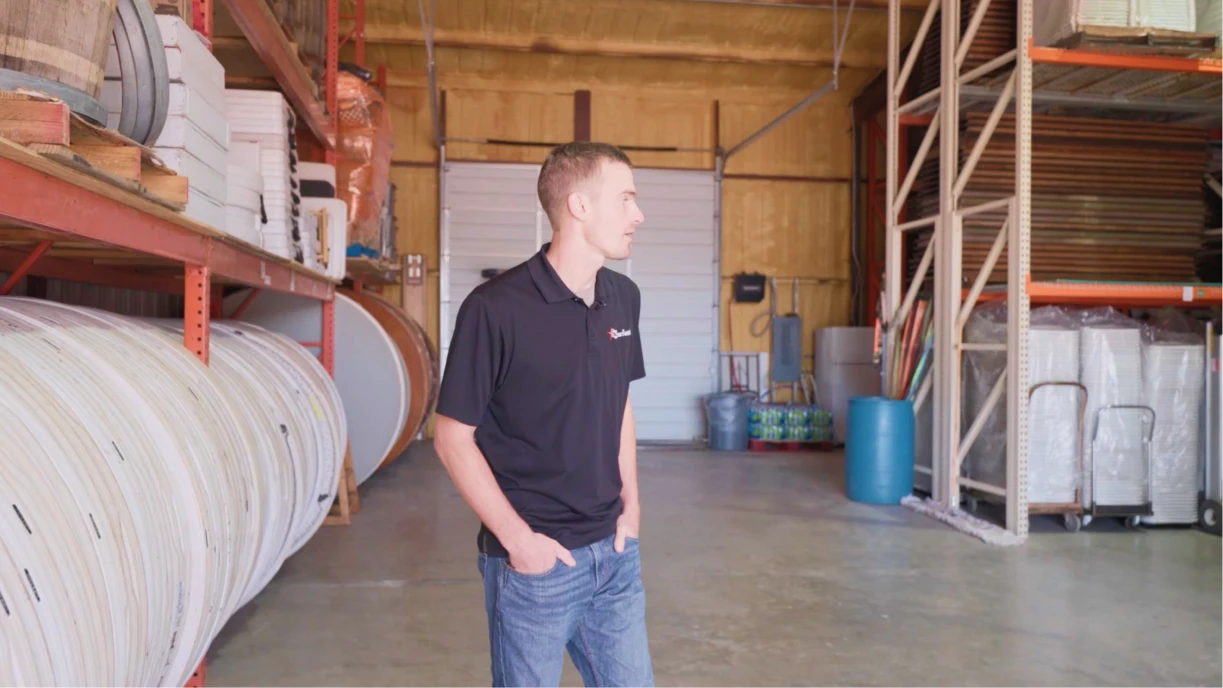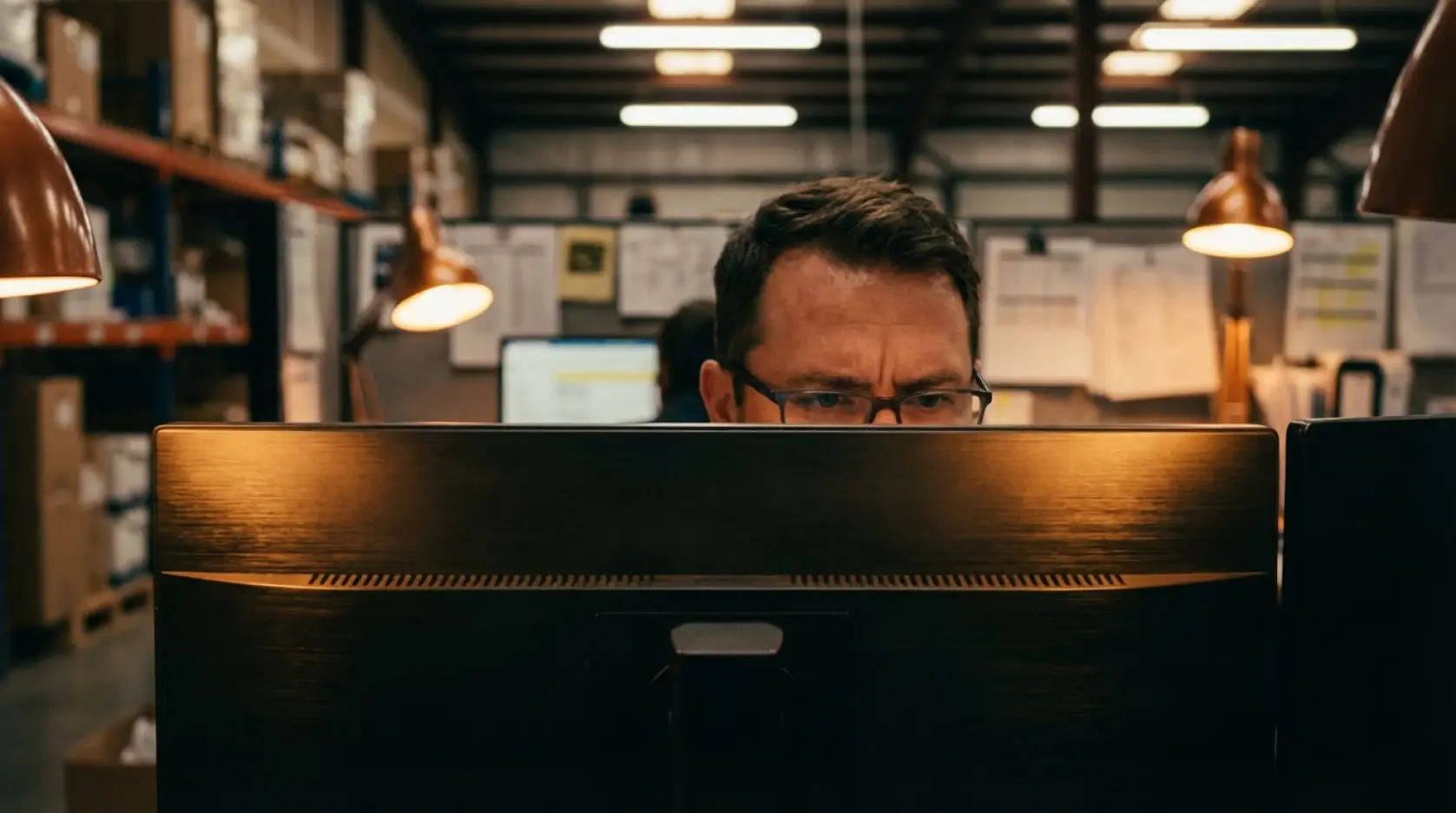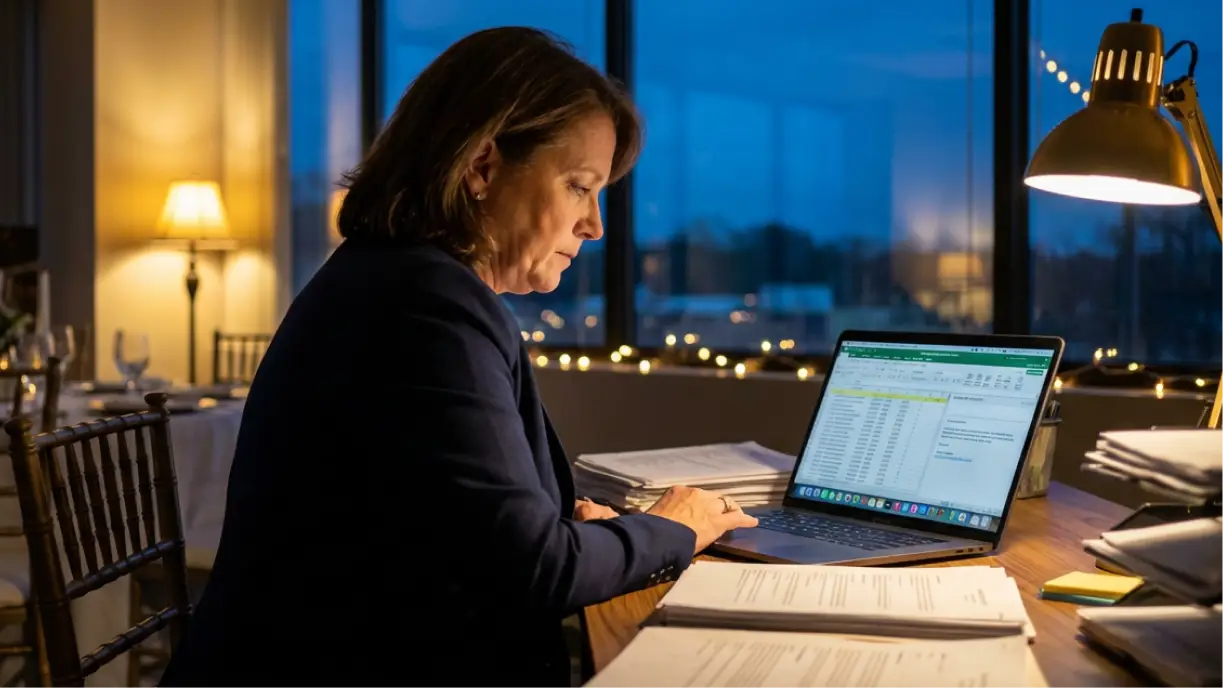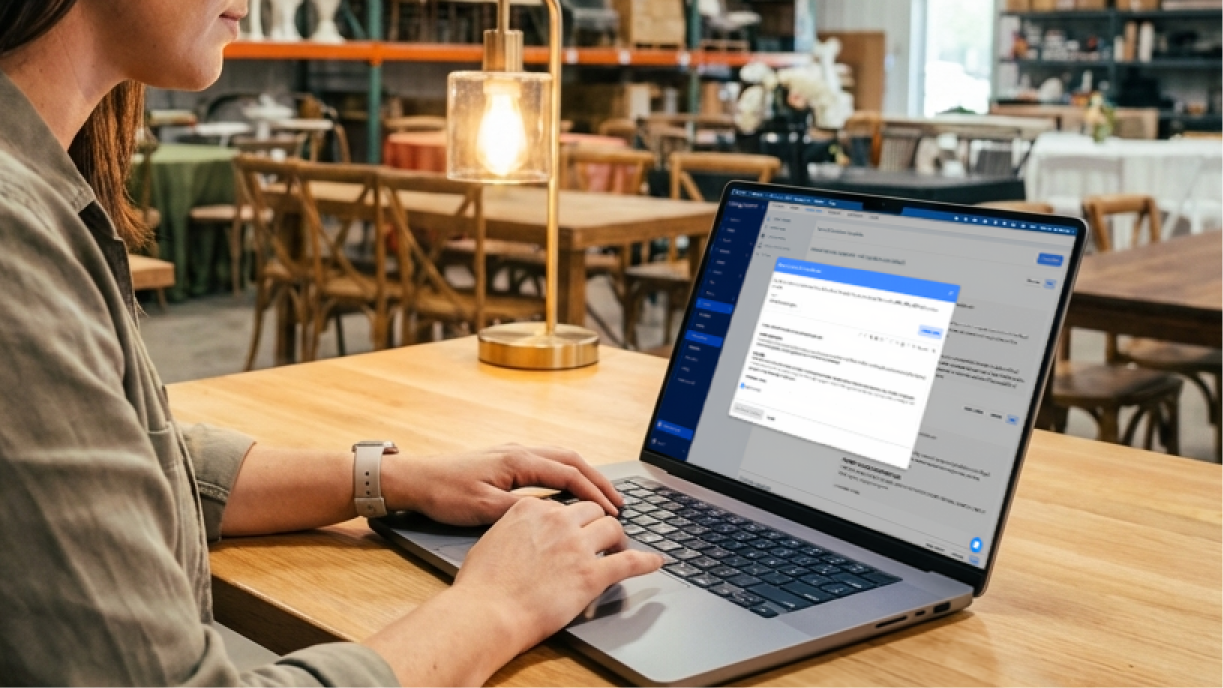Table of Contents
In previous posts, we’ve discussed why to create standard operating procedures (SOPs) and how to create them.
As a quick refresher, SOPs are essentially “how you do what you do.” Render Events’ Cam Petty advises if you do something more than three times, you should generally have a SOP in place.
While we recommend making SOPs for all of your processes, in this article we’ll go over the most important ones. These crucial SOPs help you streamline your business and establish clear expectations for your team members, so they always know what they need to be doing to move projects forward.
So without further ado, here are eight key event SOP templates that every event pro should have in place.
Key Takeaways:
-
SOPs protect businesses from disasters.
They help protect your team from incidents like inclement weather, delivery complications, and problem clients.
-
Eight essential templates cover core operations.
Quote creation, delivery/pickup, new hire training, weather protocols, external communication, equipment maintenance, inventory management, and safety procedures.
-
Software integration streamlines SOP management.
Goodshuffle Pro integration enables professional workflow automation and consistent execution.
-
Quote templates standardize sales processes.
Include client intake forms, itemized cost breakdowns, discount guides, review checklists, and follow-up protocols.
-
Training protocols ensure team consistency.
New hire SOPs should cover welcome schedules, role-specific checklists, equipment demos, safety protocols, and progress tracking.
-
Weather contingency plans prevent disasters.
Outdoor events require backup plans, client notification scripts, and timeline adjustment templates.
-
Communication standards maintain professionalism.
External communication SOPs ensure consistent, professional messaging across all client interactions.
1. Building a Quote Template
Creating an accurate and visually appealing quote is fundamental to your sales process. A SOP template for quote creation helps ensure every client receives a detailed, professional proposal.
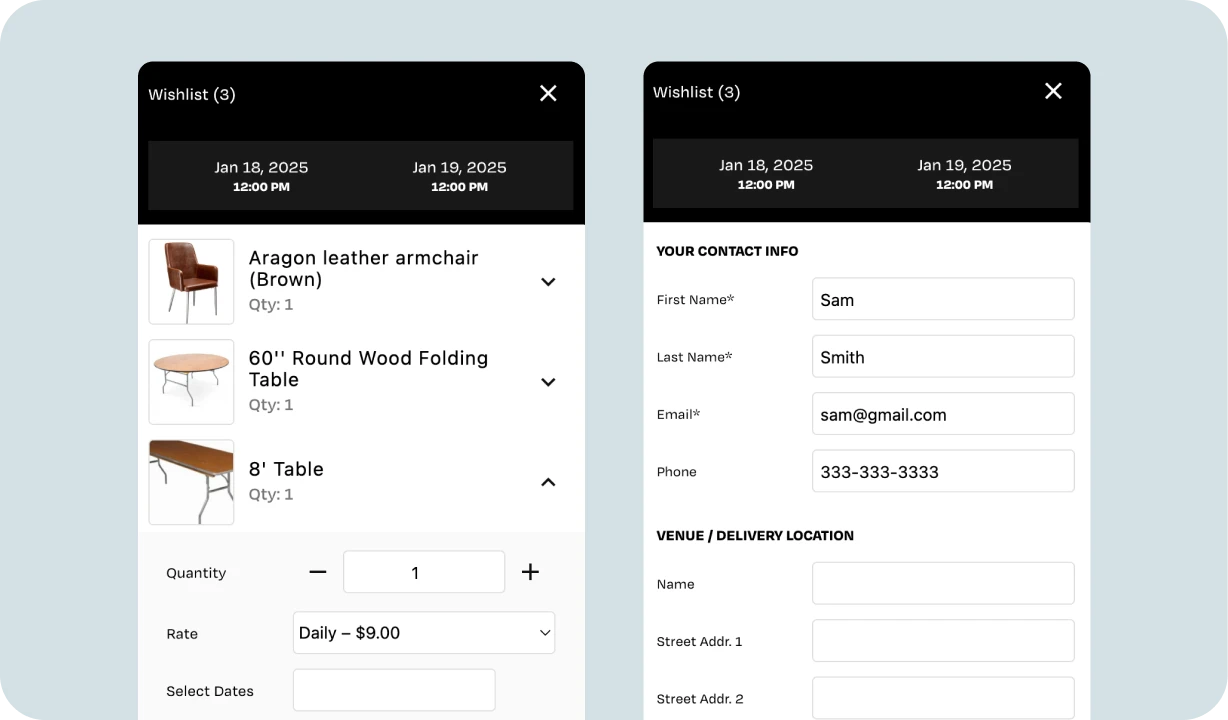
Key components of this template should include:
- Client intake form: Gather essential details such as event type, date, location, guest count, and any special requirements.
- Itemized cost breakdown: Include sections for labor, delivery fees, rental items, and any other charges so clients can easily understand costs.
- Discounts and promotions guide: Outline when and how discounts can be applied, ensuring team consistency in pricing.
- Review and approval checklist: Create a checklist for team members to double-check all details and costs before sending.
- Quote follow-up protocol: Include a follow-up timeline and templates for sending reminder emails to encourage clients to make a decision.
With a comprehensive quote template, your team can confidently send polished, accurate quotes that make a great first impression and help close sales quickly.
Pro Tip: Goodshuffle Pro’s Website Integration allows clients to automatically submit event and inventory information directly from your website. Learn more ->
2. Delivery & Pickup Template
Smooth delivery and pickup procedures are essential for client satisfaction and efficiency. This event SOP template can streamline logistics and prevent costly mistakes.
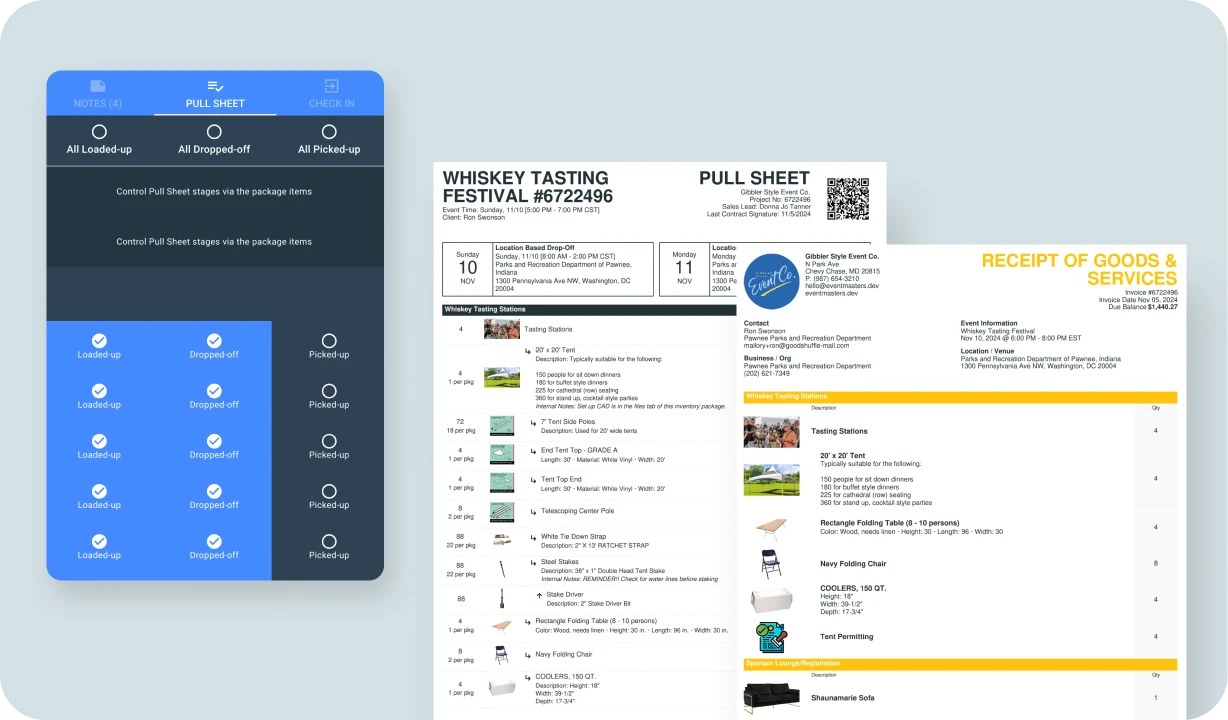
Be sure to include:
- Vehicle and routing schedule: Define scheduling rules for deliveries and pickups to maximize route efficiency.
- Loading checklist: Provide a checklist of all items, including specific counts, to ensure everything is packed accurately. Learn more about digital pull sheets here ->
- Pre-delivery inspection form: Outline steps to inspect and document item conditions before loading, preventing disputes about damage.
- Client communication template: Draft a standardized message for confirming delivery and pickup details with clients.
- Documentation protocol: Include instructions for collecting client signatures and taking photos of setups to document delivery and pickup.
This delivery and pickup template keeps logistics on track, ensuring a professional, seamless experience for every client.
3. New Hire Training Template
A well-defined onboarding process can help new hires integrate smoothly, ensuring they’re productive from day one.
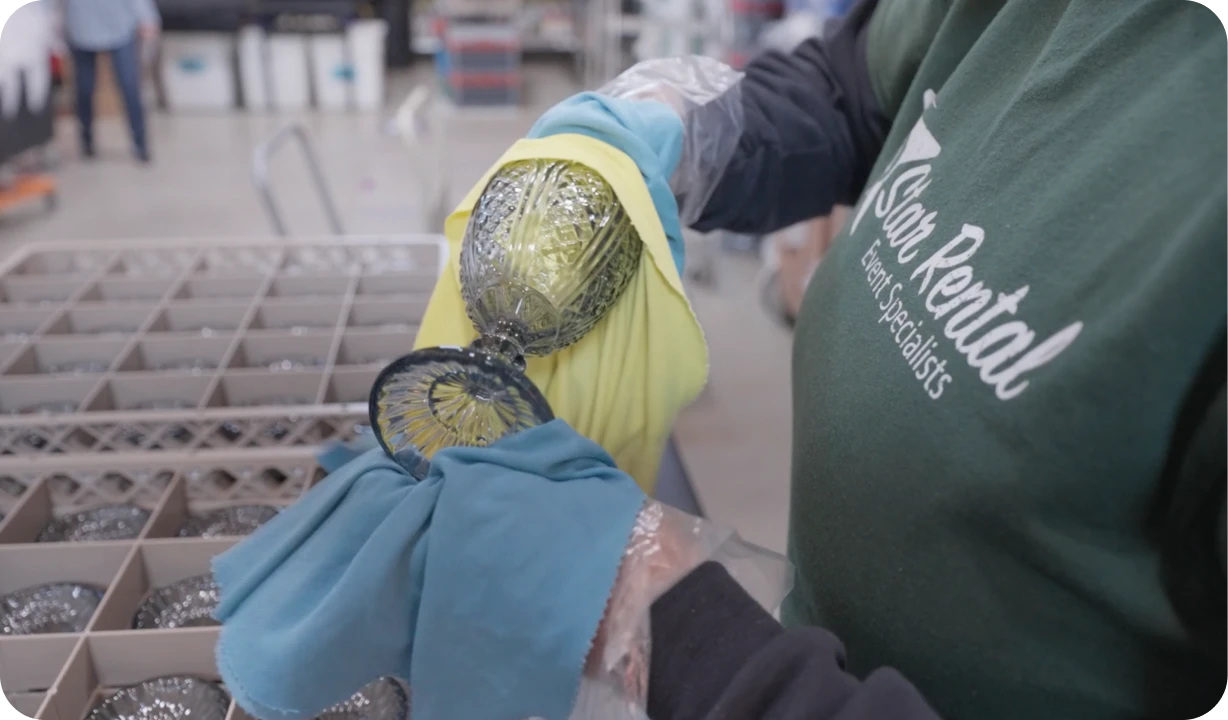
This SOP should cover:
- Welcome and introduction schedule: Provide an itinerary for the first week, including team introductions and company overview.
- Role-specific training checklist: List all skills, software, and processes new hires need to master, with suggested training timeframes.
- Equipment and software demos: Detail steps for hands-on training, including tutorials on key tools like Goodshuffle Pro.
- Safety and emergency protocol overview: Include essential training on emergency procedures and equipment handling to ensure safe operations.
- Progress check-in template: Create a form for managers to regularly assess new hires’ progress and address questions or concerns.
🌟 The 5 SOPs you need to onboard all new hires
4. Inclement Weather Template
Outdoor events often require contingency planning for weather. An inclement weather event SOP allows your team to respond quickly to changing conditions.
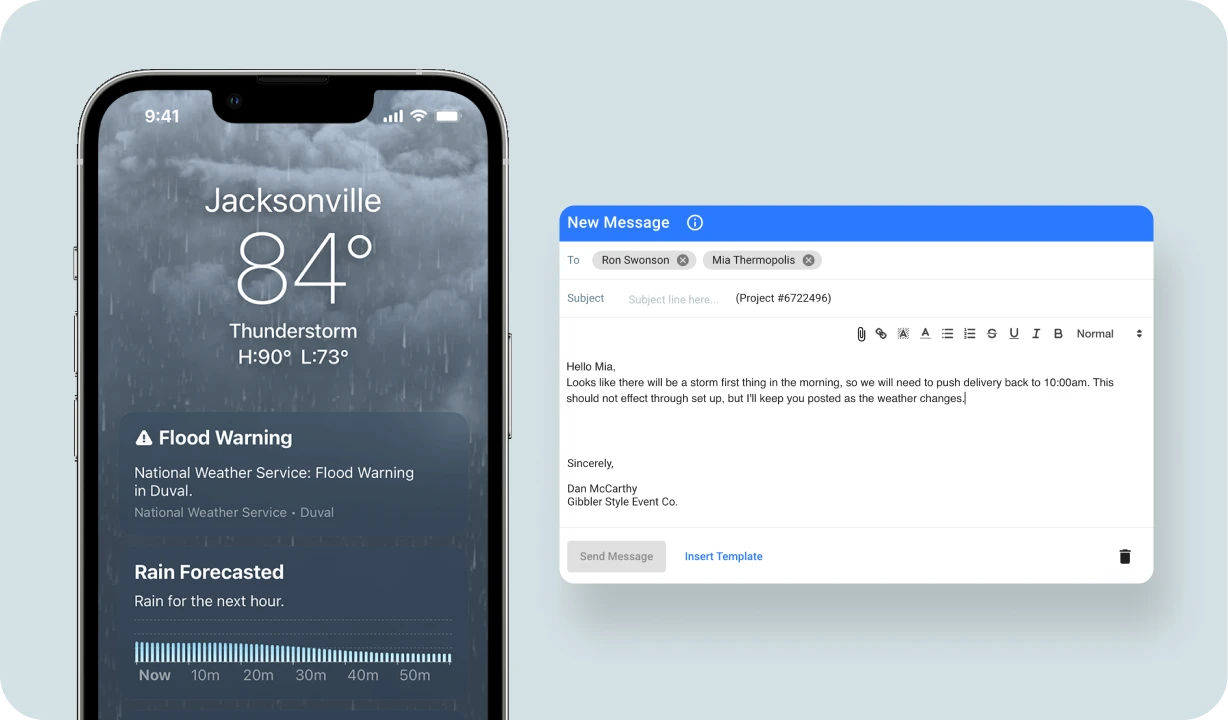
Essential components include:
- Weather monitoring protocol: Outline which tools to use and when to check forecasts leading up to an event.
- Client notification script: Provide a template for notifying clients about potential weather impacts and discussing alternative plans.
- Backup equipment checklist: List items like tents, coverings, or indoor spaces that may be needed and the process for securing them.
- Timeline adjustment template: Include guidelines for rescheduling delivery, setup, or breakdown to avoid high-risk weather periods.
- Post-event review form: Capture any weather-related challenges and client feedback for future improvements.
With a ready-to-go plan, your team can react confidently to weather challenges, and make sure clients are satisfied no matter the conditions.
5. External Communication Template
Clear communication with clients, vendors, and venues is vital for a professional business like yours. A consistent SOP for external communication ensures messages are accurate, timely, and on-brand.
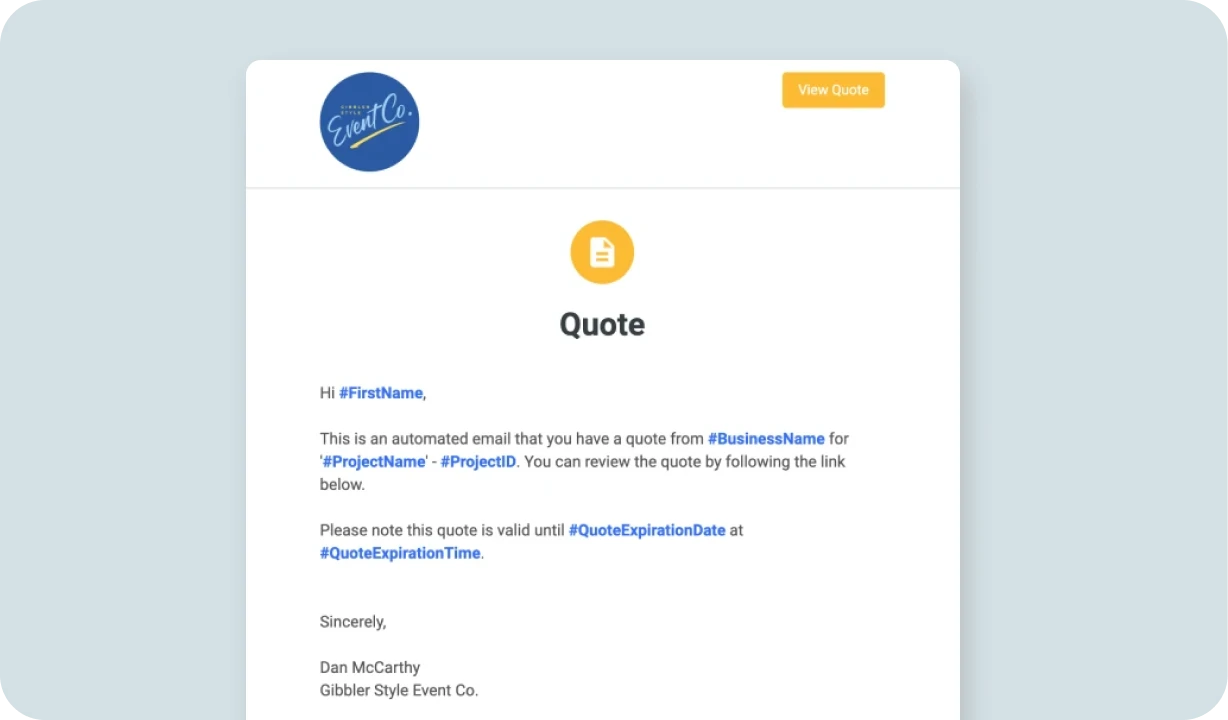
This template could include:
- Email templates: Provide pre-written messages for common scenarios such as booking confirmations, payment reminders, and event reminders.
- Tone and language guide: Outline your brand voice and preferred language for different types of communication to maintain consistency.
- Client feedback response template: Include a template for handling both positive and negative feedback to reinforce a professional image.
- Escalation protocols: Define steps for escalating issues to management if necessary, ensuring swift and effective resolutions.
- Follow-up checklist: List standard follow-up actions after an event to maintain client engagement and encourage repeat business.
6. Equipment Maintenance Template
To keep your inventory in top shape, a regular maintenance SOP is essential. This template should guide your team in routine upkeep and help catch issues early.
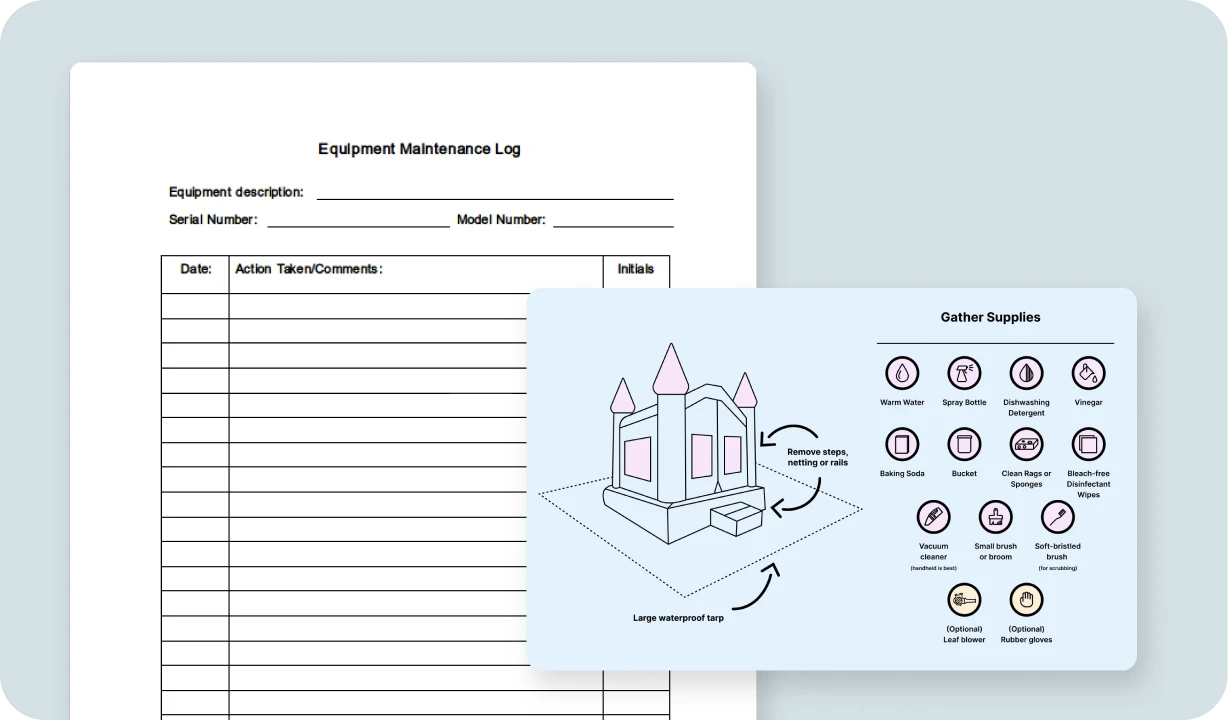
Key sections include:
- Inspection schedule: Set a schedule for regular inspections and checklists for items that should be checked each time.
- Damage assessment form: Create a form for documenting any issues found, noting whether repair or replacement is needed.
- Repair log: Keep a record of repairs performed, including dates, costs, and responsible team members.
- Inventory retirement guide: Outline criteria for retiring worn-out items and the steps for responsibly disposing of or selling them.
- Preventative care protocol: Include instructions for cleaning and storing specific items — from bounce houses to tents — to maximize their lifespan.
This SOP not only improves client satisfaction by ensuring high-quality rentals but also saves money by extending the life of your assets.
7. Inventory Management Template
Efficient inventory management prevents shortages and misplacements. This SOP template can help your team keep track of everything, ensuring availability and accuracy.
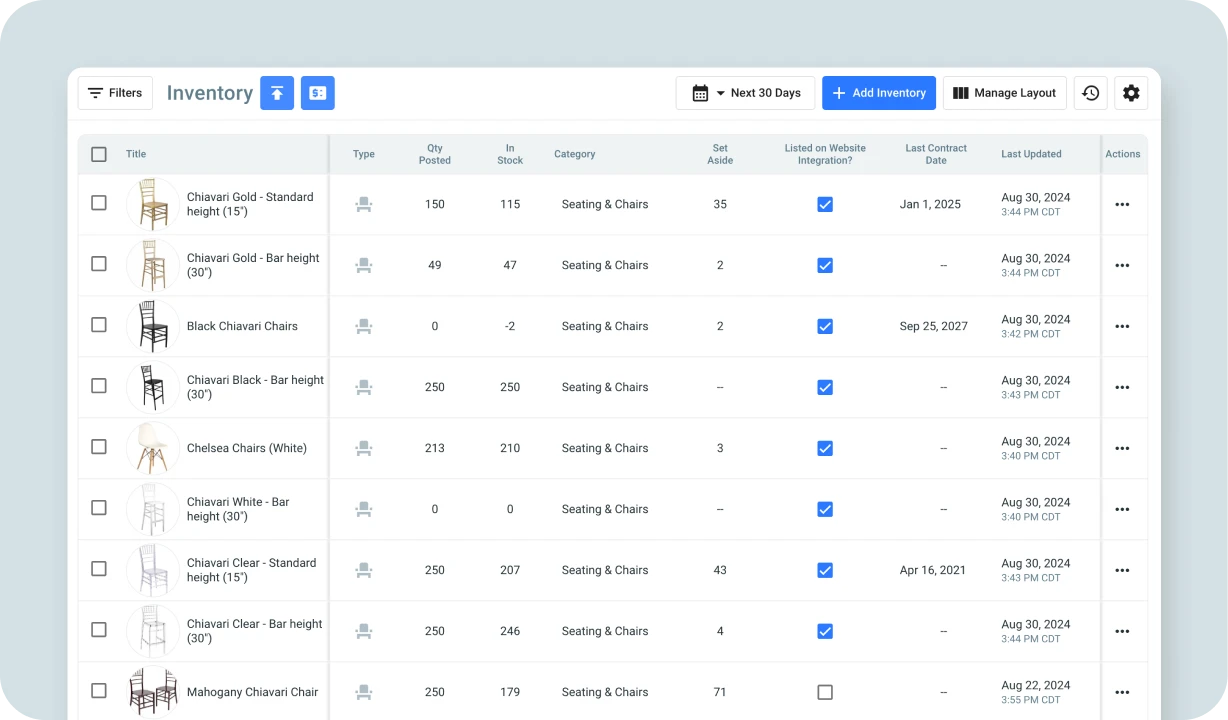
Include:
- Check-in/check-out procedure: Standardize a procedure for tracking items as they go out and return from events.
- Inventory count and audit schedule: Set a frequency for inventory counts and audits to ensure accuracy.
- High-demand item alerts: Include guidelines for flagging and restocking popular items to avoid shortages.
- Loss and damage documentation: Outline a process for documenting missing or damaged items and the steps for replacement.
- Backorder and reorder protocols: Define procedures for reordering in case of shortages or supply issues.
8. Safety & Emergency Procedures Template
Safety is paramount for both your team and clients. An SOP template for safety and emergency procedures ensures everyone knows how to handle incidents professionally and efficiently.
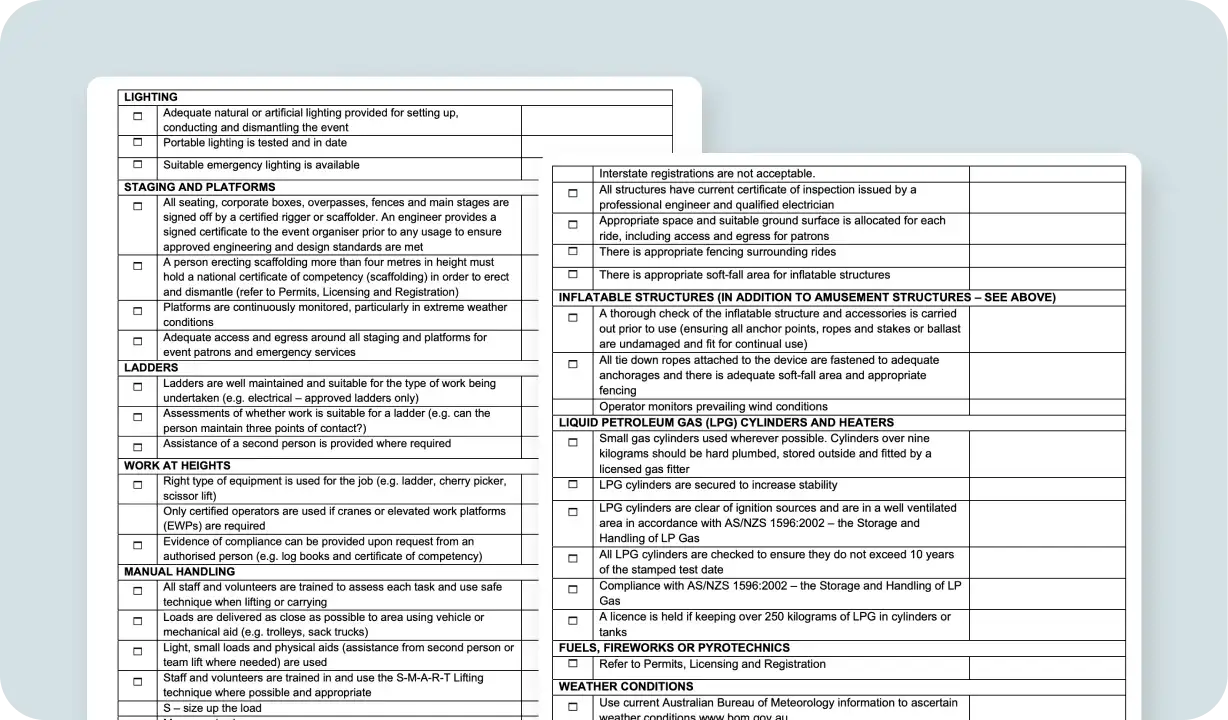
Key sections will include:
- First aid training guide: Outline basic first aid procedures and resources available for training team members.
- Emergency contact list: Include essential contacts, such as local emergency services and management.
- On-site safety checklist: Provide a checklist for ensuring event setups meet safety standards.
- Accident reporting form: Standardize documentation for any incidents, including details of the situation, witnesses, and actions taken.
- Post-emergency debrief template: Include a template for reviewing emergencies, capturing lessons learned, and updating protocols if needed.
💼 Learn how to protect your business through insurance
Get Event SOPs in Place Today
SOPs are a lifesaver for your event business. They can help protect your team and company from potential disaster by giving you a plan in the event of inclement weather, delivery complications, problem clients, and more. In short, without SOPs your team is just winging it.
With Goodshuffle Pro, you can efficiently manage these SOP templates, streamline your workflows, and focus on what matters most: delivering unforgettable events.
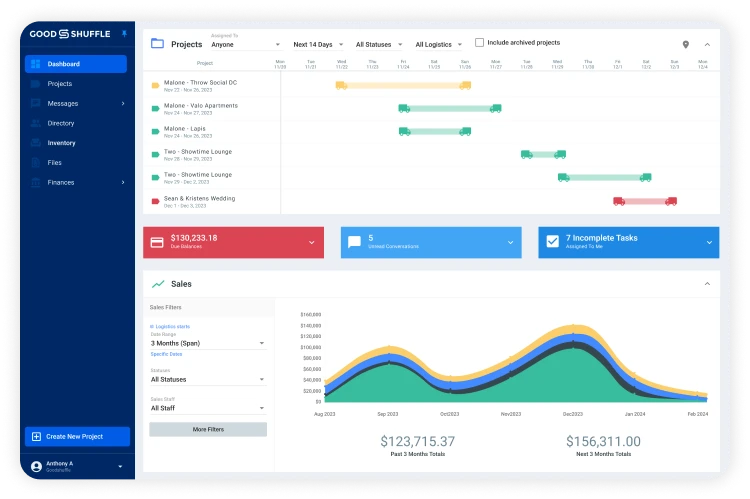
FAQs
SOPs are documented step-by-step processes that ensure consistency and quality in your business operations. Event companies need them because for their clients, “this is their one event” — clients expect perfection, and SOPs help your team deliver consistently excellent results every time.
Start with quote creation and delivery/pickup templates since these directly impact revenue and client satisfaction. Then add new hire training and safety procedures as you grow your team.
SOPs provide standardized training materials, role-specific checklists, and progress tracking systems. This ensures every team member knows exactly what to do, reducing errors and maintaining quality regardless of who’s working the event.
Include weather monitoring protocols, client notification scripts, backup equipment checklists, timeline adjustment templates, and post-event review forms to capture lessons learned for future improvements.
Software like Goodshuffle Pro can automate many SOP steps, from quote creation and contract signing to payment tracking and logistics management, ensuring your team follows procedures consistently.
